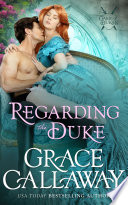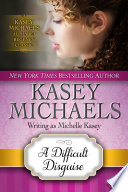When referring to the middle or merchant class, Regency romance novels will often use the term Cit or the phrase “smell of the shop”.
In our Cant dictionary (edition 1) we currently use the Grose definition below for Cit, but will be modifying to add Samuel Johnson’s notes which are more similar to how you see contemporary authors use the term:
A Dictionary of the English Language (1805)
A Dictionary of the English Language (1820)
Grose’s Classical Dictionary of the Vulgar Tongue (1823)
“Smell of the shop” is more mysterious in its origins. I have found one use of the term from 1816 in an essay on pedantry from Richard Whately. Using the Google ngram search tool (thank you noagnes!), I was able to find it used in several editorial columns in the early 19th century in publications like The Monthly Mirror:
The Monthly Mirror
Volume 23 (1807)
The Savage, by Piomingo (1810)
THE SPIRIT OF THE PUBLIC JOURNALS FOR 1814 (1815)
The Google ngram search showed the phrase rising in usage around the end of the 18th century, with a peak usage in the 1830s, and a smaller peak in the 1860s. The phrase did not begin appearing in dictionaries until the 1860s. The earliest example I could find is from Webster: ” To smell of the shop to indicate too distinctively one’s occupation or profession To talk shop to use the phrases peculiar to one’s employment” Dr. Webster’s Complete Dictionary of the English Language (1864).
Carlisle (2001) and Bailey (2022) also highlight the Victorian trend to use smell as a class dividing line, likely hastened by Dickens popularity, as he was well known to highlight the smell of people, places and things (Rigby, 1957).
Bailey, L.A. (2022). An Assault on the Senses: Cultural Representations of the Victorian Village Shop. In: Dyer, S. (eds) Shopping and the Senses, 1800-1970. Palgrave Macmillan, Cham. https://doi.org/10.1007/978-3-030-90335-0_3
Carlisle, J. (2001). The Smell of Class: British Novels of the 1860s. Victorian Literature and Culture, 29(1), 1–19. http://www.jstor.org/stable/25058536
Rigby, S. (1957). Olfactory Gleanings. Dickensian, 53, 36.










I don’t know if you ever tried to use the Google ngram viewer but I made an attempt and it gives several results for mentions of this phrase in published products in the early 1800s.
https://books.google.com/ngrams/graph?content=smells+of+the+shop&year_start=1800&year_end=2019&corpus=en-2019&smoothing=3
This is a helpful tool, thanks for sharing!
I did find references prior to the mid 1800s for phrases like “smells of the shop” but in those cases they were literally talking about shop smells. However, when I revised that search to “smell of the shop” with the Google ngram viewer, Eureka! It did produce some examples that had escaped my research of the phrase in use prior to the mid 1800s. I am going to revise the post above. Thank you!